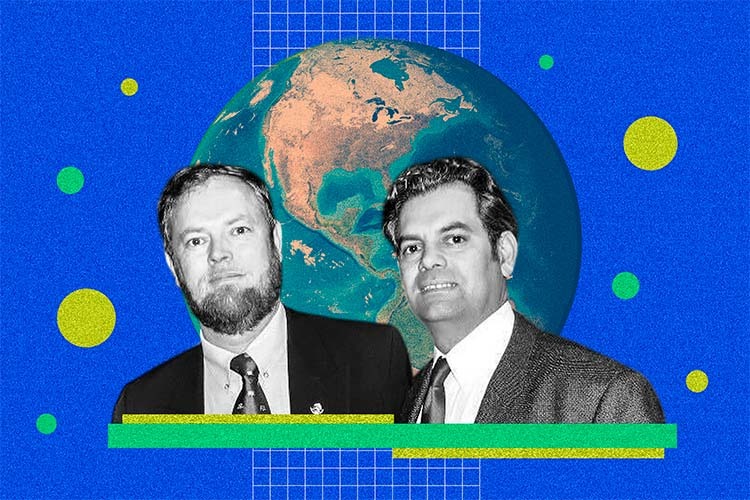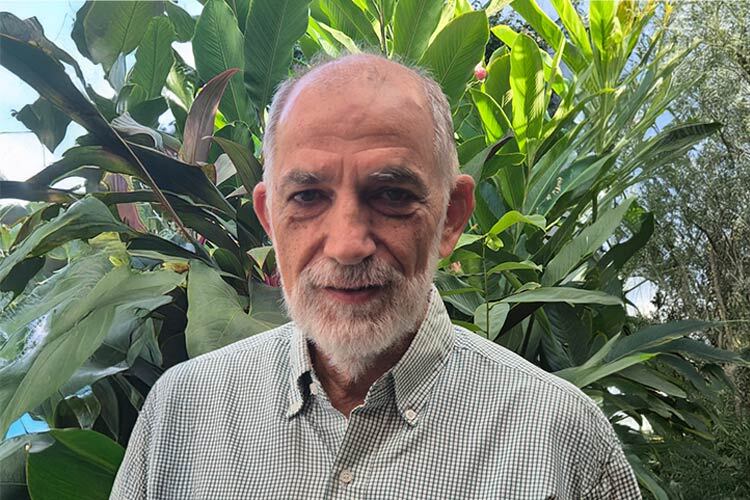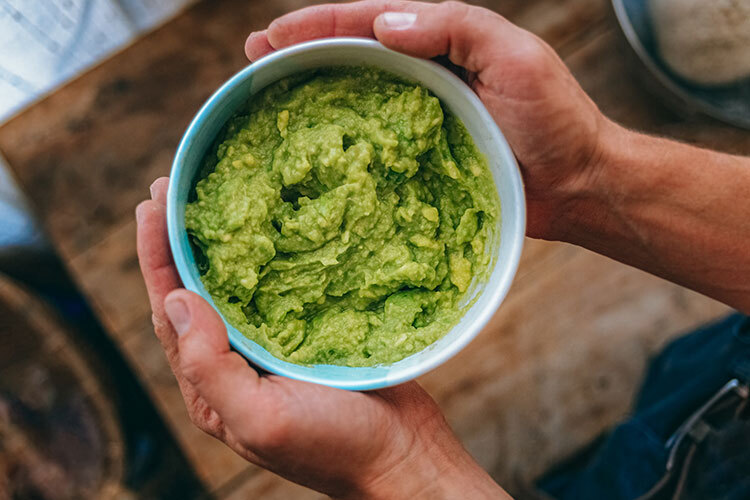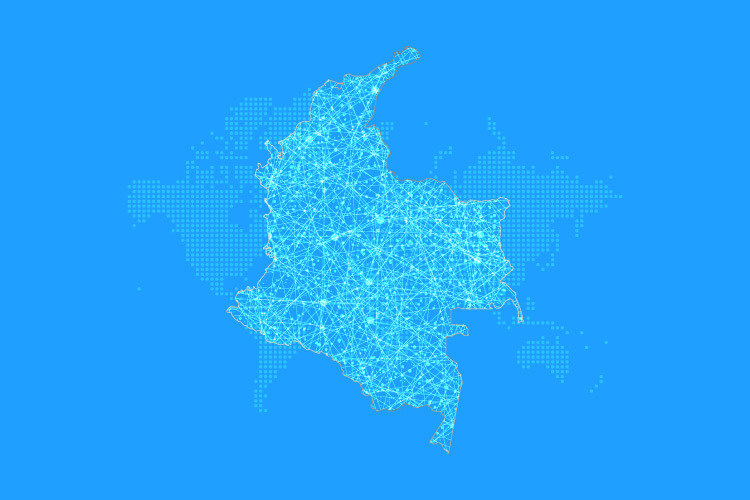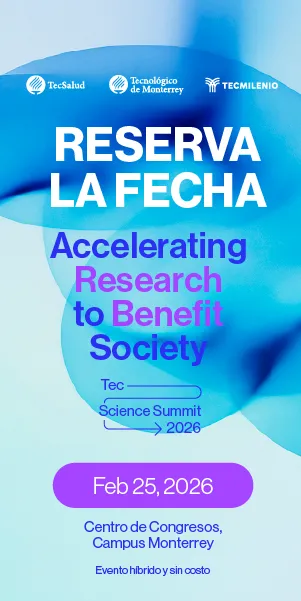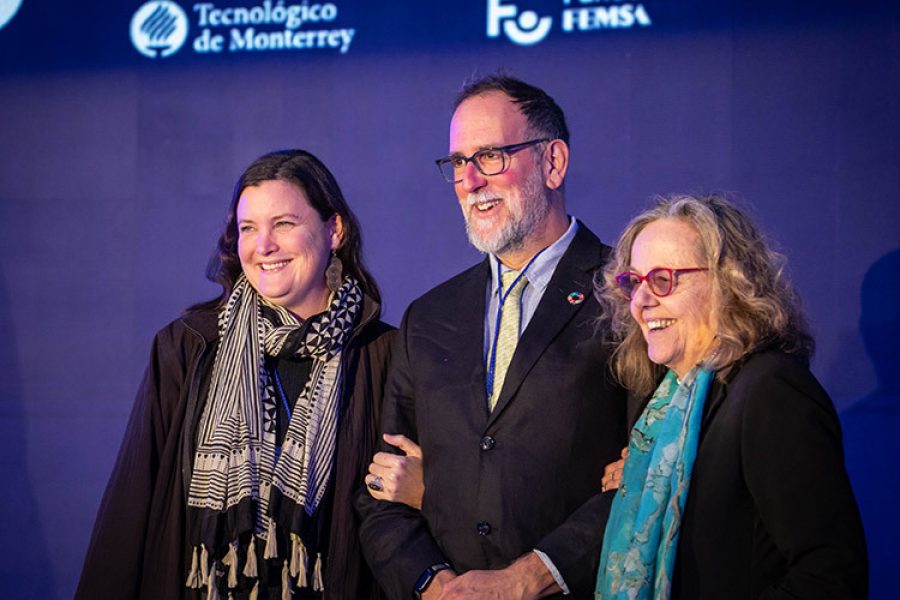As children, the Enkerlin brothers (both EXATEC) lived surrounded by deer, bears, coatis, owls, parrots, canaries, snakes, tarantulas, and even a badger whose bite left Walther Enkerlin a lifelong scar.
In that “home zoo” in Monterrey, Walther and Ernesto Enkerlin developed a deep respect for nature that shaped their careers.
They are sons of Dieter Enkerlin Schallenmüller, a Tec de Monterrey professor and founder of MoscaMed, and Ana María Hoeflich Esponda, both of German descent. Along with their siblings, they grew up in a household where research, fieldwork, and nature were part of daily life. This early bond with animals shaped their academic paths.
Ernesto studied agricultural engineering in production at Tec, specializing in zootechnics. He later completed a PhD in wildlife sciences at Texas A&M University.
Walther focused on entomology and pest control, shaping his work in agriculture and international trade.
The Journey of Entrepreneurship and Applied Science
“I, unlike Walther, have always been super addicted to risk,” recalls Ernesto. After his bachelor’s degree in Texas, he chose entrepreneurship, running an apple orchard that later became his fruit brand. But the commercial liberalization of the 1990s and competition with U.S. markets ended that chapter.
Meanwhile, after traveling to Canada as a volunteer at the Royal Botanical Gardens, Walther returned to Mexico and joined MoscaMed, a pioneering program combatting the Mediterranean fruit fly with the sterile insect technique (SIT). This method consisted of sterilizing male insects through irradiation and releasing them into the wild population. When infertile males mated with wild females, reproduction failed, reducing the pest without pesticides.
The innovation allowed Mexico to become a reliable exporter of pest-free fruit, just as the North American Free Trade Agreement (NAFTA) expanded agricultural trade opportunities.
Enkerlin brothers: A Global Legacy
After leaving his entrepreneurship and pursuing his doctorate, Ernesto returned to Tec as a research professor at the Center for Environmental Quality.
He was appointed in 2001 as president of the National Commission of Natural Protected Areas (Conanp) and helped shift Mexican conservation policy toward a participatory model that included local communities instead of excluding them.
During his nine years of management, Mexico increased natural protected areas by 50%, registered 125 wetlands on the Ramsar list, and the Monarch Butterfly Biosphere Reserve was recognized as a UNESCO World Heritage Site.
In 2010, Walther became director of MoscaMed’s international program and later joined the International Atomic Energy Agency (IAEA), where he expanded SIT applications worldwide. Today, even after retiring from the agency, he continues to advise governments and international organizations.
Ernesto now serves as scientific director of the Wildlife Organization, is a founding member of Pronatura, and leads the Avocado Landscape Project, which promotes sustainability practices in one of Mexico’s most valuable export crops.
Both brothers acknowledge the influence of their father and agree that their last name opened doors for them, but also that their legacy is due to their passion and commitment to science. Their story shows that a bond with nature can grow into a lifelong scientific calling with global impact.
Were you interested in this story? Would you like to publish it? Contact our content editor to learn more: marianaleonm@tec.mx
